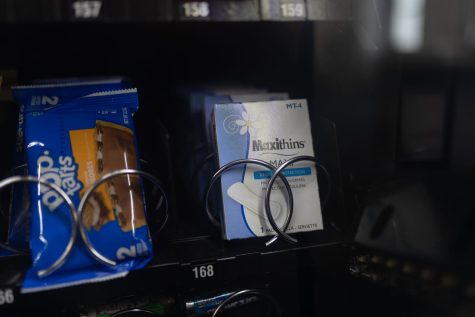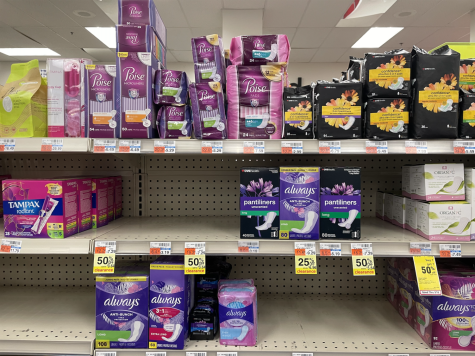Student leaders push for menstrual equity across campus
March 13, 2023

Students at Columbia are pushing to make menstrual products free to access in the bathrooms at the Student Center.
Elizabeth Vasquez, the student representative to the Board of Trustees, is leading the initiative on behalf of the Student Government Association.
The Period Project at Columbia is inspired by similar ones around the country that focus on menstrual equity and period property, including increased demand for university-level initiatives seeking to provide free access to menstrual products on campus.
SGA is providing initial funds for the project but hopes to find partners across campus to help.
The products will only be available at the Student Center at first. “When we first began bouncing ideas off of each other, we realized that going campus-wide was too ambitious, given our time and budget,” Vasquez said.
Nicole Vandewalker, a first-year film major, said it was a great idea to start with the Student Center.
“I think that [menstrual products] should be free and available to all the students that go to Columbia, especially at the Student Center, where people just hang out in between classes,” Vandewalker said.

Zoe Lewis, a first-year fashion major, agreed that the products should be free and easily available.
“I am constantly looking at my clothes, so I’m very worried if I do leak or anything,” Lewis said. “I think that a lot of women need to help each other out and just be [there] for each other.”
SGA received broad support for the initiative when it surveyed students last year.
Students were unanimous about wanting to see more menstrual products available on campus. About 68% of the 60 respondents asked for pads.
Students also asked that menstrual products be available in all buildings, free and accessible to everyone, regardless of gender identity.
One student who responded to the survey mentioned feeling empowered about finally normalizing menstruation, Vasquez said. “I think one of the biggest issues that we could also possibly tackle — which has historically been viewed as a touchy, taboo, or disgusting subject — is the issue of menstruation stigma.”
Amelia Smith, a first-year American Sign Language interpretation major, said the products definitely should be available to “anyone with a uterus.”
“I think the initiative is really great,” Smith said. “It would bring a lot of access to integral products for a lot of students.”







